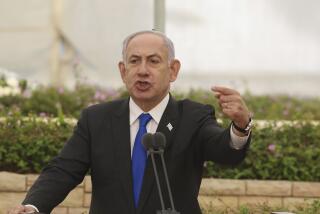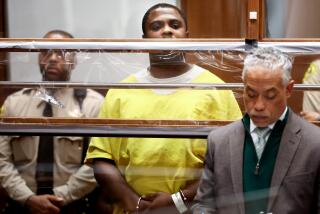Powell Says Iraq Arms an Open Question
- Share via
TBILISI, Georgia — Secretary of State Colin L. Powell, who urged the United Nations to endorse a war to strip Iraq of supposed weapons of mass destruction, conceded Saturday that Saddam Hussein’s government may not have had such arms.
Powell made the comments a day after David Kay, the leader of the U.S. search for banned weapons in Iraq, stepped down and said he did not believe there were any large stockpiles of chemical or biological weapons in the country.
Asked which was right -- Kay’s statements or Powell’s argument then that Iraq had failed to account for vast quantities of chemical weapons -- Powell replied: “I think the answer to the question is, I don’t know yet.
“Last year when I made my presentation it was based on the best intelligence that we had at the time.
“What is the open question is how many stocks they had, if any, and if they had any, where did they go? And if they didn’t have any, then why wasn’t that known beforehand?” Powell told reporters aboard his plane en route to Georgia, where he is scheduled to attend today’s presidential inauguration of Mikheil Saakashvili.
Powell said in defense of the decision to go to war that the Bush administration was not simply troubled by the conviction that Iraq possessed unconventional weapons and development programs, but also that Hussein had refused to answer U.N. questions about his government’s activities on the subject.
“We were not only saying we thought they had them,” Powell said, “but we had questions that needed to be answered. What was it: 500 tons, 100 tons or zero tons? Was it so many liters of anthrax, 10 times that amount, or nothing? What we demanded of Iraq was that they account for all of this and they prove the negative of our hypothesis.”
In response, Powell said, “all they did was make statements without proving it to our satisfaction. This is a regime that never lost its intention to have such programs and have such weapons.”
Powell’s widely watched presentation to the U.N. Security Council in February 2003 represented the heart of the administration’s case for the war.
More to Read
Sign up for Essential California
The most important California stories and recommendations in your inbox every morning.
You may occasionally receive promotional content from the Los Angeles Times.













